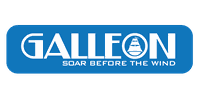随着我国航空制造业的不断发展,民航运输业也正在面临新机遇、新挑战,首架C919的成功交付是中国民航业和航空工业发展的一个新里程碑。不仅将为国内外民航市场带来变革,也标志着中国有能力在当今世界最为复杂的制造领域向市场提供成熟化的产品,将进一步带动相关先进制造业的发展,国产大飞机的商业成功需要航空制造业和民航运输业进行"两业"深度融合。另一方面,中国民用飞机机队规模预估在未来20年里将增长一倍,到2041年,中国机队规模将从大约3900架增加到9600多架,尽管民航飞机设计使用寿命可以达到20年甚至更久,但中国民航一直以来的运力结构风格偏向于整体机队机龄年轻化,替换的周期更短。未来20年,每年有超过100架飞机进入"中老龄"(即机龄在12年及以上),且年复合增长率超过15%。随着新一代飞机的不断交付,未来将不可避免地迎来旧飞机的"退役潮"。
飞机价值评估作为主机制造商及航空公司资产优化的先决要素必定愈加受到关注,大量旧飞机到寿退役,飞机资产管理将向飞机全寿命管理发展,专注利用最大化、价值最大化、产业最大化的全过程,飞机价值管理的重要性也将进一步显现。
With the continuous development of China's aviation manufacturing industry, the civil aviation transport industry is also facing new opportunities and challenges. The successful delivery of the first C919 is a new milestone in the development of China's civil aviation and aviation industry. It will not only bring changes to the domestic and international civil aviation market, but also signal that China can bring mature products to market in the most sophisticated manufacturing sector in the world. It will further drive the development of relevant advanced manufacturing industry. The commercial success of domestic large aircraft requires the deep integration of aviation manufacturing and civil aviation transport industry. On the other hand, the size of China's civil aircraft fleet is expected to double in the next 20 years, from about 3,900 to more than 9,600 by 2041. Although civil aviation aircraft are designed to have a service life of 20 years or more, the capacity structure of China's civil aviation has always favored a younger fleet age. The replacement period is shorter. Over the next 20 years, more than 100 aircraft will enter the "medium aged" (that is, 12 years or older) every year, with a compound annual growth rate of more than 15%. As the new generation of aircraft continues to be delivered, it is inevitable that there will be a wave of old aircraft retirement in the future.
Aircraft value assessment, as a prerequisite for the asset optimization of aircraft manufacturers and airlines, is bound to attract more and more attention. A large number of old aircraft will be retired. Aircraft asset management will develop to the whole life management of aircraft, focusing on the whole process of utilization maximization, value maximization and industry maximization, and the importance of aircraft value management will further emerge.














































